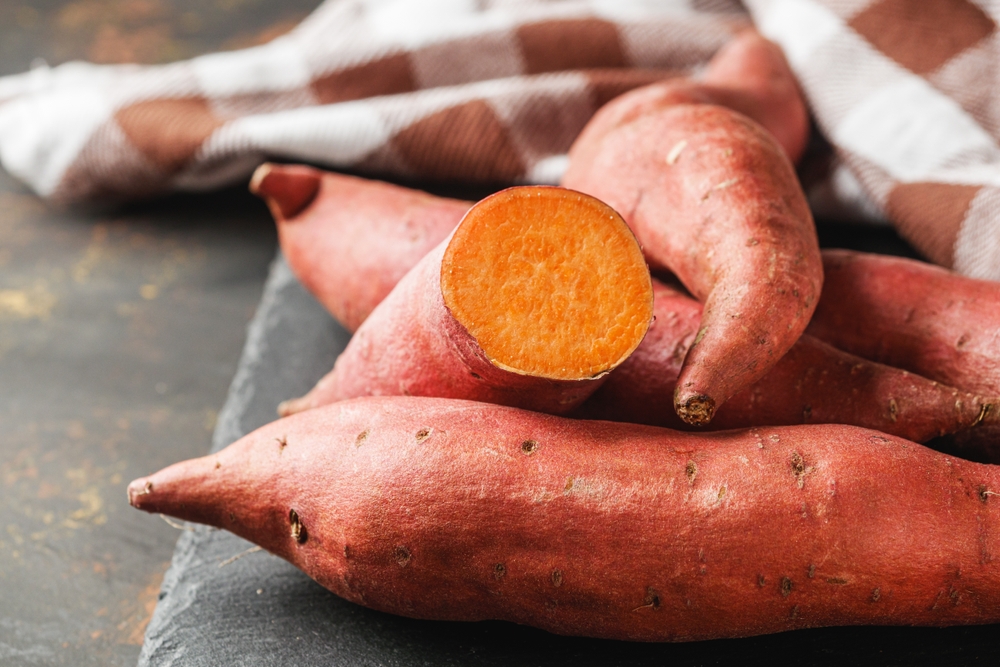Listen to the elders: Sweet potatoes are good for you!

By Dennis Archambault
There are foods we just refuse to eat. It may not make a lot of sense. Maybe it’s how they look (eggplant) or initial taste (the bitterness of some greens) or simply a combination of everything at the wrong time. Whatever it is, I develop a child’s aversion to a holiday staple: sweet potatoes, for reasons I can’t quite remember, but a taste preference I haven’t developed.
“Eat it. They’re good for you.” Like other forms of parental guidance, this didn’t work for me. But, as with many examples of parental guidance I rejected, they were correct. Sweet potatoes are good for you. Don’t take my word for it. Read this scientific article published in the Library of Medicine. The authors tell us that this root vegetable is considered an excellent source of antioxidants, cardiovascular protection, cancer prevention, and improved neurological and memory capacity. And the purple sweet potato if you’re fortunate to find one, is even better, they say.
Ask the American Diabetes Association: “Those with diabetes can benefit from eating sweet potatoes, as the fiber can also slow the absorption of sugar from meals and improve blood glucose (blood sugar) levels. A diet high in fiber can also help prevent type 2 diabetes from developing.” So, what’s not to like?
Or the American Heart Association: “1 cup of baked sweet potato with skin has 769% of the daily value of vitamin A, far more than the amount found in yams (3%) or in white potatoes (1%). Vitamin A can improve vision, reproduction, and the immune system – and it helps the heart, lungs, and kidneys function properly.”
It took me a lifetime to discover sweet potatoes. Like those bitter greens and, yes, eggplant, I am learning to like them. Not that I have totally overcome my childhood aversions, but health science is compelling me to pay attention to what the elders preached: “They’re good for you.”
Dennis Archambault is vice president of Public Affairs for Authority Health.
